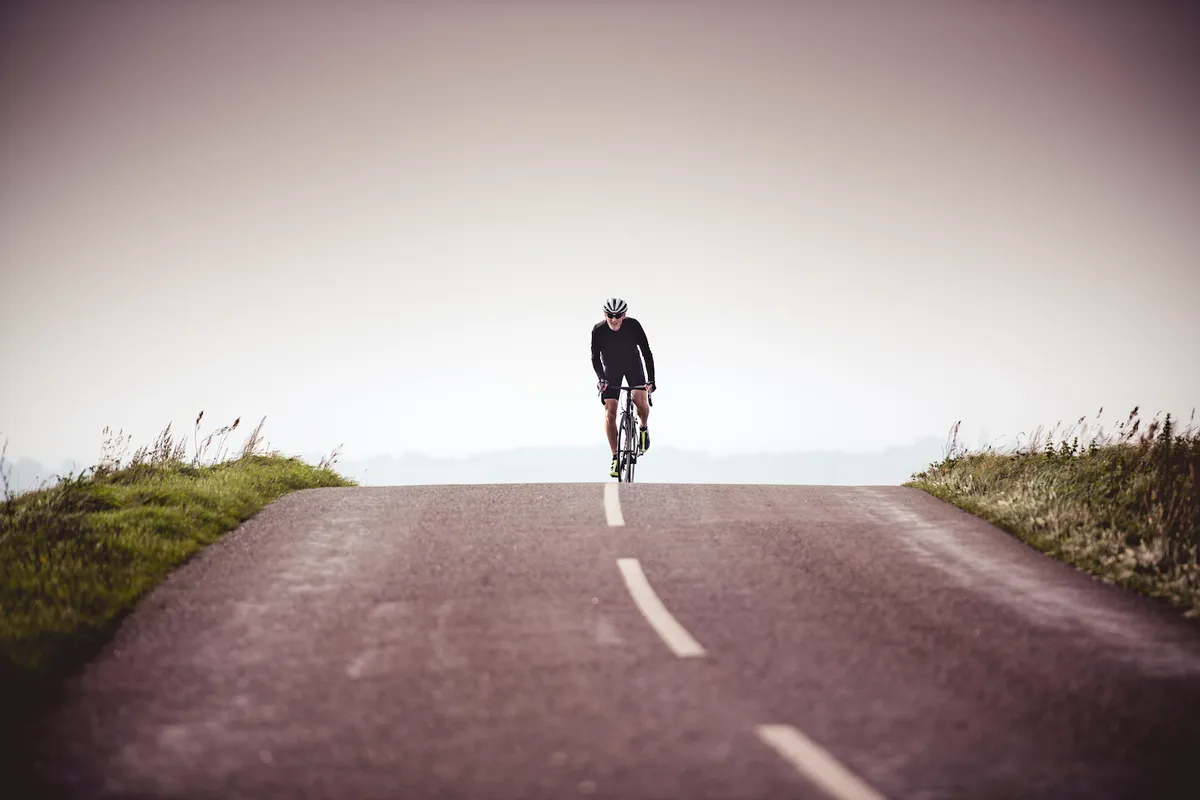On 20 July 2010, life irrevocably changed for GB sporting legend James Cracknell. In fact, he came perilously close to losing it.
Competing in another characteristically epic challenge – a cycle, row, run and swim from Los Angeles to New York within 18 days – the two-time Olympic gold medallist was hit from behind by a petrol tanker during the cycling portion on a quiet stretch of road outside Winslow, Arizona.
Cracknell, who is the rehabilitation ambassador at HCML, attributes his survival to the fact he was wearing a bike helmet, and has spent the years since campaigning for better understanding and education around their use and life-saving importance.
Here, in an exclusive Q&A with the multiple world rowing champion and epic sporting-challenge enthusiast, he explains more on the importance of wearing a bike helmet, how the accident still affects him 12 years on, and how he'd like to change the nations's way of thinking…
Why is it important to wear a bike helmet?
We all think ‘it won’t happen to me’, but the reality is that all cyclists are vulnerable road users. It’s not just about being a safe and responsible cyclist yourself, it’s about other road users.
We can’t assume that everybody is the perfect driver, constantly checking their mirrors and not on their phone. Personally I think the opposite so that I’m less surprised by any erratic movement.
It's startlingly easy to sustain a head injury, whether it’s a relatively minor injury such as a concussion, or a severe brain injury, for example following a skull fracture.
A study of over 64,000 cyclists across the world found that wearing a cycle helmet reduces risk of serious head injury by almost 70% and fatal head injury by 65% (Olivier and Creighton, 2016).
The real question should be, 'why wouldn’t you wear one?'
What type of injuries can be sustained if you don’t?

One of the greatest risks from not wearing a helmet is skull fracture, which can include depressed fractures where the skull has been pushed in. However, it’s important to note that even a minor head injury can have a major – and lasting – impact.
We see a lot more use of the word ‘concussion’ these days, particularly in sport. A concussion can also be referred to as a minor head injury or mild traumatic brain injury resulting from a blow to the head.
Symptoms can be ongoing and include confusion, mood swings and difficulty retaining or processing information. More severe brain injuries, which include swelling of or bleeding on the brain, can also be sustained, which can affect every aspect of you, impacting you physically, cognitively, emotionally.
It can impact your work, your relationships and even your sense of self.
How does a bike helmet protect your head from injury?
Cycle helmets save lives and can prevent people sustaining lifelong brain injuries. They're designed to protect our skulls and brains from injury by absorbing the impact energy and thus reducing the resulting movement of the brain within the skull.
They also spread the force of an impact over a bigger area to protect the skull from fracture.
What are the barriers you see for people not wearing helmets?
Often, we hear people say that helmets are restrictive; they clearly have never tried one on or found the correct fit!
Some people don’t see the dangers or more worryingly fail to acknowledge them, despite our roads being ever-more crowded.
Some say wearing a helmet is inconvenient – but I can tell you from personal experience about the inconvenience caused by brain injury.
What I often ask people to consider is this: When you buy a new smartphone, worth thousands of pounds over the life of a contract, the first thing most of us do is spend an extra £20 on a protective case.
That’s because our phones contain precious memories in the form of photos or messages. They organise our lives and help us to socialise with others. We become inseparable from these tiny computers, without which we can’t seem to function.
Your brain is the most precious computer you will ever own. You can replace your phone’s screen if it cracks, and upload backed-up data onto a new phone if yours breaks.
But you can’t simply get a new skull if yours cracks and you can’t restore your memories, emotions or personality from a hard drive if you sustain a brain injury.
Would you like the UK laws to change so that bike helmets are a legal requirement?

I’m proud to be the Vice President of Headway, the leading UK-wide charity that supports people affected by brain injury. Like Headway, I believe all cyclists should wear helmets – particularly vulnerable cyclists such as children who do not possess the same level of competency or experience as adults.
This includes supporting calls for a range of additional measures to improve cyclists' safety, including more dedicated cycle lanes and educational campaigns aimed at both cyclists and motorists.
With the introduction of seatbelts in cars came a lot of objection. But through education campaigns and over time, acceptance and appreciation of the vital role they play in saving lives resulted their use becoming second nature.
Putting on your seatbelt is an automatic process when you get into a car; we value the security it provides, without it changing our driving behaviours through some false sense of risk compensation. Would you use a hire car if it came without seatbelts?
We need more public health campaigns to educate about the life-saving benefits of wearing a helmet while cycling.
I love cycling and want to encourage more people to get on their bikes – whether for sport, leisure or commuting.
But please do so safely and protect yourself as best you can. Follow the Highway Code, which says cyclists should wear helmets. Use your head – use a helmet!
You had your accident 12 years ago, does it make you angry that you’re still having to campaign about this?
Frustrated rather than angry. As a country we hate being told what to do.
The resistance to drink-driving laws when they came in, seatbelts being compulsory, the number of people who smoked/still smoke when they know the health risks.
Behavioural change takes far too long, but I can guarantee you that if a friend of family friend has a bike accident you will wear a helmet.
How does the injury still affect you?
Medically, as a result of the accident, I still have epilepsy and have no sense of taste or smell. Behaviourally, I think I'm back. But it took a while, and other people may disagree!
What does take time and may never happen is people’s perception of what you're able to achieve/do post-accident. I will fight against that for as long as I live.
Top image credit: Richard Wearne/Comic relief/Getty Images
